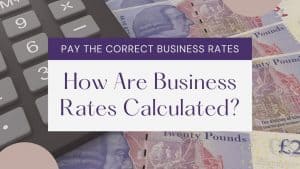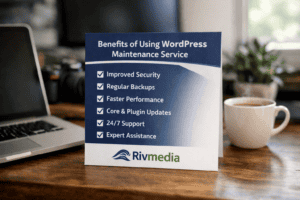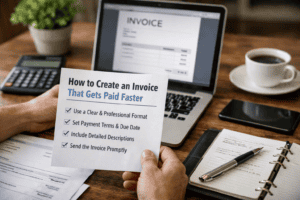Table of Contents
Starting your own business is not as difficult as many people think, the hard part is keeping the business going, increasing turnover and ultimately profitability. Many people are put off from setting up their own small business because they look at the overall picture instead of cutting it down into individual parts. If you are building a jigsaw, you wouldn’t put all of the pieces together in one go, simply add one then the next, then the next and very quickly the image begins to emerge. It is no different when starting a small business.
We will now take a look at some of the specific areas to be aware of when setting up a business.
Business plan
In simple terms, if you start off on a journey setting up a new business you need to have a final destination otherwise how do you know where you are going to? While many people believe that a business plan is simply the start-up process, medium term aspirations and long-term goals, together with a detailed study of the appropriate market, it is also important to consider an endgame. Would you be looking to sell the business, hand it over to family or would you simply wind it down as you approach retirement?
Even just the briefest of ideas about what you want to achieve, the service you want to offer and where you see yourself in the current market should be enough to start the ball rolling. As we cover below, the next stage would be to chat with an accountant and put together a more detailed business plan – especially if you are applying for any type of finance. When you have appointed an accountant it is imperative that you give them the full background to the business idea, personal finances and your long-term goals. If you think of your accountant as a friend in business as opposed to just a bean counter then you will get the most out of this relationship.
Get yourself an accountant
The general impression given to many people looking to set up their own business is that they can save significant fees by doing their own accounts and their own tax submissions. In some cases this may be the case, but if you’re looking for advice i would strongly recommend finding yourself a reputable accountant to talk to. Finding the right accountant takes in an array of issues such as specialist services, chemistry, fees and availability if required for further consultation.
Even if the majority of time you simply use your accountant to submit your tax returns there are some very good offers available and if you need further assistance they are always there. My personal experience is that a good and understanding accountant will be able to save you more than their annual fees by organising your affairs in the most tax efficient manner.
Do I need to set up a company?
There are many pros and cons to remaining self-employed or setting up a company which will hold all of your business assets and business operations. Individual circumstances are very different and our finances will vary as well as our long-term goals. Many people start off self-employed and then transfer all business assets into a company when it becomes more beneficial. As we touched on above, if you are serious about creating a long-term business you will need an accountant. Many will offer a fee free initial consultation at which point you can discuss your personal circumstances, business aims and they will be able to advise you whether a limited company or self-employment (or any other option) is right for you.
There is no point in scouring the Internet for weeks on end to find conflicting advice, use the services of an accountant and you will have an answer almost immediately.
Employing staff
On the surface, employment law and the various regulations surrounding staff members can be extremely challenging. Sick pay, holiday pay, national insurance and income tax payments, they may as well be written in a foreign language for those who have never come across them before. However, if you’ll take a look at issues in isolation such as employment contracts, remuneration, defining roles in the business and disciplinary procedures, much of this is already available on the Internet.
This is also an area where your accountant can assist, pointing you in the direction of various websites and literature for background reading. Indeed, the vast majority of accountants will offer some kind of payroll system where they will administer remuneration and payment of relevant taxes to your employees. In many cases relatively small businesses will only attract relatively small payroll service charges from an accountant which makes them a real option for those who prefer to maintain their focus on growing the business. There are obviously various employment laws and regulations which impact the vast majority of staff but again, if these are broken down into specific areas, and addressed as and when required, they are nowhere near as difficult as you might assume. If you are concerned about issues such as holiday pay there is a very simple HMRC holiday entitlement calculator:
https://www.gov.uk/calculate-your-holiday-entitlement
There is also a very useful section on payroll with HMRC approved software you can download onto your computer which will calculate the breakdown between gross pay, tax and net pay:
https://www.gov.uk/browse/employing-people/payroll
As many self-employed individuals will have few staff in the early days the simple HMRC payroll software is a serious option. It is very simple, advises you of changes over the year and takes away much of the work involved in calculating payroll.
Marketing your services
Even though the Internet has opened up a vast array of different marketing opportunities for small, medium and large size businesses, you still need to focus in areas where you will get maximum exposure and maximum value for money. In this day and age it is vital that you have some kind of website even if this is just a holding page with contact details and a brief about your business. Social media accounts also play an important role in some types of business but not all. Pushing social media simply for the sake of it may be a waste of your time, which could be better spent building up the actual business.
It is now possible to advertise on specific websites, publish Google ads and really focus on advertising in areas which are highly relevant to your business. If you search the Internet you will see an array of different marketing styles and strategies some of which will work for you although some won’t. While focused marketing will bring you the best returns, do not fall into the trap of spending your marketing budget for the sake of it without a return. On the flipside, you will only ever grow your business if you market your services and products to the outside world. Cutting costs on marketing may save you a few pounds in the short term but in the long term it could seriously impact growth.
When looking at building a website or implementing a marketing strategy it is vital that you do your research on potential partners. There are literally thousands of reviews on many website designers, marketing companies and any other service you may require. It is obviously vital to get value for money but this should not be to the detriment of the end service. Cheap and cheerful does not always win the day!
Funding
There are many different ways to fund a business these days, from government based grants to crowdfunding, from business angels to traditional bank finance. All of these different options have various pros and cons because some offer a purely monetary service while others may also make available consultancy services. When looking at funding you will need some kind of cash flow projection, part of your business plan, to ensure you are fully funded – which will at least give your business a fighting chance to prosper. There is also an argument for putting in place some “headroom” which is effectively additional finance in the event of unforeseen costs.
Again, doing your own research, your own background reading and then speaking to your accountant you should fairly quickly be able to put together a viable business plan, cash flow projections and funding requirements. The inclination to keep funding requirements as low as possible, potentially to the detriment of the business, can backfire spectacularly. It is difficult to borrow more money if your initial cash flow forecasts have proved flawed but on the other hand, if you have some “financial headroom” there should be additional capital available for “unforeseen circumstances”.
Funding is a vital part of your overall business plan and there should be funding requirements to set up the business as well as trading in the short, medium and long-term. It is not simply a case of getting the business started and taking it from there; you should have a long term plan. Even though this plan may change over time, you need to have initial targets and financial boundaries.
Cash flow
You will have heard the term “cash is king” in the world of business well, cash flow is even more important. There are literally thousands and thousands of businesses which have fallen by the wayside simply because of bad management of cash flow. Growing too quickly, mismanaging payment terms and failing to maintain control of expenses are all potentially detrimental to your long-term goals. Balancing cash inflow and cash outflow from customers and to those who provide products and services to your business should never be underestimated.
If for example, you operate a business that gives your customers 60 days in which to pay their invoices but you pay your supplies within 30 days, it is not difficult to see the potential problems. As your business grows, so the outstanding cash flow grows and with it your short-term liabilities are also extended. At some point cash flow will turn negative and you may have problems settling with your suppliers within the 30 day period. If one supplier closes your account this will impact your ability to offer a product/service and see a vicious circle begin. It is imperative that your customers are closely managed in relation to payment of outstanding invoices. Where viable and cost-effective you could use extended payment periods for your suppliers.
In some circumstances businesses will offer incentives for those who pay early while penalising those who pay late. The idea of penalising those who are late payers is perfectly valid but if they are struggling already, does it really help to place interest on top of their debts? This is where business relationships also come into play, close enough to talk to individuals about their individual circumstances while far enough away not to get involved on a personal basis. This can prove to be very tricky but if you can manage it then it will help to improve your cash flow and ensure that your future predictions are as accurate as possible.
Conclusion
We have only just scratched the surface when it comes to setting up a small business but one thing that is obvious is the fact that if you split various tasks into smaller parts, they are much simpler to manage. There are also many who feel an accountant is “a waste of money” when in reality, used correctly, they not only pay their way but are also there to offer advice as and when required. Even though the Internet will give you background on any subject, there will be pros and cons, there will be positive and negative comments and sometimes it is difficult to remain balanced.
Chatting to your accountant, telling them what you want to do and how you would like to do it will give them the opportunity to use their experience and point you in the right direction. It is also imperative that you do not withhold any important financial or personal information from your accountant, give them the overall picture and they will be able to give you the best advice. Cutting corners can save money in the short term but is it really cost effective in the long-term? Are you saving a pound to lose £10 in the future? Are you putting the long-term viability of your business at risk?
At the end of the day, you need to retain as much time as possible to focus on what you are good at, building the business. Other peripheral noise such as payment of wages, tax, funding requirements and cash flow are all important but there are people out there who can advise on your individual circumstances. This leaves as much time as possible to focus on growing the business………….







